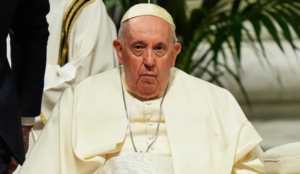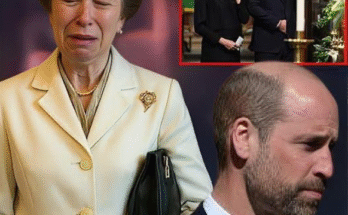Pope Francis, at the age of 88, is currently in a critical but stable condition, receiving treatment at the Gemelli Hospital in Rome for a series of health issues, including double pneumonia and mild kidney failure. While his condition remains concerning, there have been no reports of major complications or changes in his status. The Vatican continues to monitor his health closely and is offering updates to the public, though it has denied rumors that his condition is so severe that he is nearing resignation or death.
This situation brings renewed attention to a remarkable aspect of Pope Francis’s papacy that many may not know: the resignation letter he signed twelve years ago. In 2013, shortly after his election as pope, Francis signed a letter of resignation, which he then entrusted to the Vatican’s Secretariat of State. This letter was prepared in anticipation of a time when, due to age or health issues, he might no longer be able to fulfill his duties. This proactive measure was a rare but not unprecedented action within the history of the papacy.
Pope Francis’s decision to prepare a resignation letter reflects his pragmatic approach to leadership. It was a way to ensure that the Vatican would not be left without guidance in the event of his incapacity. In a 2022 interview, the pope publicly confirmed the existence of this letter, explaining that it was written to be used only in case he could no longer fulfill his responsibilities. The letter was specifically designed to address the possibility of his health deteriorating to the point where he could not perform his papal duties.
The existence of such a letter is not entirely unusual in the modern papacy. In fact, Pope Paul VI, who served from 1963 to 1978, also prepared a letter of resignation, though it was never used. The idea of preparing such a letter underscores the responsibility the pope has for the Church and the recognition that the papacy is an office that demands the full capacity of the individual holding it. Pope Francis’s approach also contrasts with previous papacies, where many assumed a pope would remain in office until death.
However, despite the resignation letter and his ongoing health issues, there has been no official indication that Pope Francis intends to resign anytime soon. While his health has been a subject of concern in recent years, he has shown resilience and a determination to continue his work. Even in his hospital bed, Pope Francis is known for his deep spiritual engagement, and his doctors are cautiously optimistic about his recovery. His resignation letter, rather than signaling an impending end to his papacy, serves as a precautionary measure, ensuring that the Catholic Church would continue to function smoothly in the event of his incapacity.
In the meantime, the Vatican continues to provide updates on Pope Francis’s health, focusing on his recovery process. For now, the pope remains committed to his papal duties, with no indication that his resignation letter will be needed in the near future.


